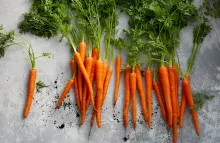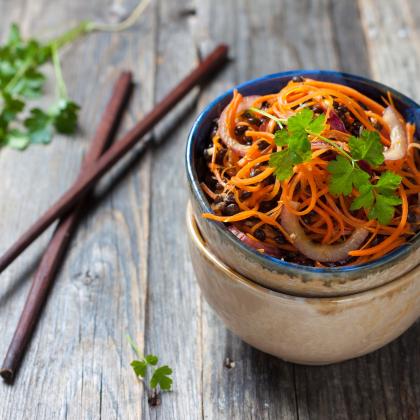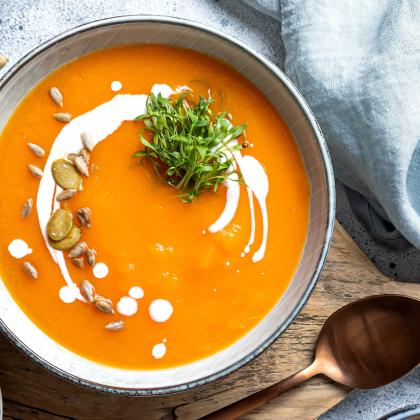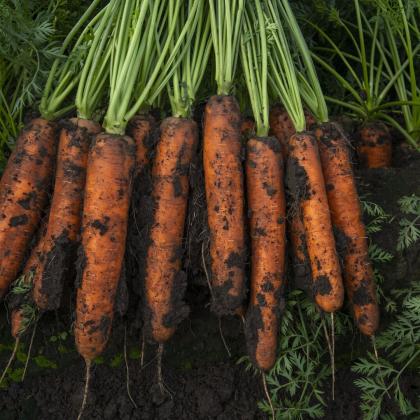Carrot recipes
The best thing about carrots? Their versatility! Whether you roast, boil, or purée them, they’re always delicious – and, surprisingly, they work wonderfully in sweet dishes too!
Caramelised carrots: In many cuisines, carrots are roasted with honey, which enhances their natural sweetness.
Carrot soup with ginger: A velvety soup where the zing of ginger beautifully complements the sweetness of carrots.
Pickled carrots: In countries like Korea, carrots are pickled with vinegar and spices to create a tangy, crunchy snack that’s great on a charcuterie board.
Carrot cake: A classic dessert where carrots add a wonderfully moist texture.
Carrots can be prepared in countless ways. Steaming and boiling are quick methods, but if you want to enhance their deep, sweet flavour, roasting, baking, or puréeing are fantastic options.
Preparing carrots
Boiling
Boiling carrots
Carrots taste best when they still have a slight bite. Don’t overcook them – 8 minutes is ideal to keep them firm and juicy. Cut them into equal-sized pieces to ensure even cooking.
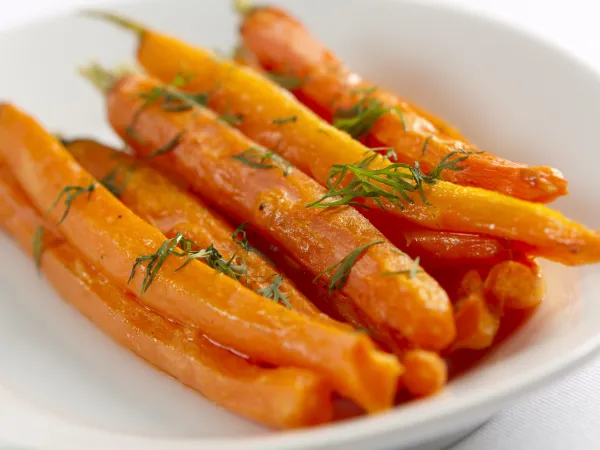
Buying and storing carrots
Fresh carrots should have a firm texture. If they still have green tops, these should look fresh and vibrant. Avoid limp carrots. They will keep in the fridge for up to two weeks, but without the greens, they stay fresh even longer. Store them in a paper bag or vegetable drawer to prevent them from drying out.

